Maxmilian Wechsler talks to H.E. Markiian Chuchuk, Ukraine’s ambassador to Thailand
| CONSIDERABLE credit for the positive and flourishing bilateral relations between Thailand and Ukraine can be attributed to His Excellency Mr Markiian Chuchuk, Ambassador of Ukraine to the Kingdom. The warmth of these relations was underlined in October when Thailand’s Defense Minister Air Chief Marshal Sukampol Suwannathat visited Ukraine, where he met President Viktor Yanukovych. They were also evident last September when many Thai officials and foreign guests attended the Bangkok party, overseen by the ambassador and his charming wife Tetiana, to mark the 21st anniversary of Ukraine’s independence. Mr Chuchuk himself is invariably described by his peers as informed, dedicated and well prepared, a man who puts his country’s interests above anything else. In a crowd, he’s easy to spot, being usually the tallest man in the room. |
On the many occasions I have met the ambassador, he’s come across as modest but also strong-willed.
Not long after I sent Mr Chuchuk a list of questions for this interview, he arranged a meeting at the relatively small but well decorated Ukraine embassy in Bangkok. With magnificent views from the 33rd floor of All Seasons Place on Wireless Road as a backdrop, the ambassador readily and even eagerly answered my questions, and volunteered many interesting anecdotes to boot.
“I was born in 1961 in one of the most picturesque areas of western Ukraine, not far from the Carpathian Mountains, in Ivano-Frankivsk. The area is a lot like Chiang Mai, but with a slightly colder climate. My first specialty was biology and I started out as a professor at the university. Then I studied law in Kiev University. In 1990 I was elected as a member of the Ukrainian Parliament, which actually proclaimed the independence of Ukraine [from the Soviet Union] in 1991,” he said.
“I arrived in Bangkok for the first time in 2008 after being appointed as ambassador, with my term starting from August. This is my first ambassadorial assignment. Normally we have a four-year posting, but it can vary.
“Before becoming ambassador to Thailand, I held the position of deputy director-general of the Political Department of the Ministry for Foreign Affairs of Ukraine. As a government official, I also served in Russia and Georgia. I spent almost five years working for the United Nations Observer Mission in Georgia (UNOMIG).”
Asked about his duties and responsibilities as ambassador, Mr Chuchuk replied: “This question is posed to me quite often and at first glance it would seem to have a simple answer, but experience has proven it more complicated. In general, I am commissioned to represent my country’s external relations with Thailand.
“If we take as an example a big enterprise which deals with foreign trade or production, there is a huge array of issues occurring in day-to-day practice to be solved or settled. It is the same in the area of diplomacy. The role of ambassador is designed to facilitate the development of our bilateral dialogue, to make it move ahead as smoothly as possible. In practice, this is very hard work. Almost every day I have meetings with officials, businessmen and scholars.”
Diplomatic relations
“The Kingdom of Thailand recognized the Independence of Ukraine on December 26, 1991 and diplomatic relations were established on May 6, 1992. So, this year marks the 20th anniversary.
“The Embassy of Ukraine was opened on October 22, 2002. The staff of the embassy is not large, consisting of a few diplomats and administrative staff, but we are also responsible for Lao PDR and Myanmar.
“As yet there is no Thai Embassy in Ukraine. The Thai side in Kiev is represented at the level of Honorary Consulate and the Royal Thai Embassy in Moscow covers Ukraine,” the ambassador said.
“To describe current relations between Ukraine and Thailand in the spheres of politics, trade, culture, tourism and sport, one could talk a lot, and at length, but I will try to formulate some basic points. In a nutshell, strengthening of friendly relations with the Kingdom of Thailand is an important priority of Ukraine’s foreign policy in Southeast Asia. We recognize the role of Thailand as a regional leader and geopolitical bridge between Europe and ASEAN.
“Therefore for some time now Thailand has been one of the major partners of Ukraine in the ASEAN region. I am pleased to note that there are no issues between Ukraine and Thailand which could be seen as obstacles in our relations.
“At the same time, we proceed from the fact that with its economic potential, scientific experience and geographic location, Ukraine could become an important partner for Thailand and a gateway to the markets of the European Union and Commonwealth of Independent States countries.
“Cooperation between the Ukraine and Thai governments is good in all areas. However, in my opinion, there’s room for improvement. At this time the trade turnover is approaching a half billion US dollars, including military purchases. Taking into account the long distance between our countries, this volume of trade is not bad at all. However, in my opinion, there is potential for much more.”
Key Ukrainian exports to Thailand are ferrous metals and metal products, aluminum, fertilizers and pesticides, wood and wooden products. Ukraine mainly imports electrical equipment, mechanical instruments, vehicles, sea products and rubber products from Thailand.
“Ukraine is one of the world’s major exporters of steel, and this is one of the main commodities we are exporting to Thailand. Ukraine is also a very big exporter of wheat, and during the past few years we have began to export wheat to Thailand, not only for human consumption but also as feed for animals. From Thailand we import mainly machines and seafood products.
“Despite the geographical distance, there are some particularly striking examples of cooperation in culture and sport. Thai sportsmen regularly take part in competitions in Ukraine, especially when it comes to Thai boxing. Moreover, in mid-October Bangkok hosted the Dance Festival, which inaugurated the Ukrainian Dance Ensemble founded by our honored academic P. Virsky. I consider the tour of the dance team in Bangkok as one of the important achievements of the embassy in the field of cultural exchange.
“As for tourism, according to our figures around 40,000 Ukrainians come to Thailand annually and there is a stable growth trend. On the other hand, only a few hundred Thai citizens visited Ukraine last year, but the numbers have been higher over the last few months thanks to the exposure from EURO 2012 [the football tournament which Ukraine hosted]. Aerosvit provides direct flights between Kiev and Bangkok, four times a week, with more added during high season,” Mr Chuchuk added.
About 100 Thais live permanently in Ukraine, noted the ambassador, and roughly the same number of Ukrainians living in Thailand.
Not long after I sent Mr Chuchuk a list of questions for this interview, he arranged a meeting at the relatively small but well decorated Ukraine embassy in Bangkok. With magnificent views from the 33rd floor of All Seasons Place on Wireless Road as a backdrop, the ambassador readily and even eagerly answered my questions, and volunteered many interesting anecdotes to boot.
“I was born in 1961 in one of the most picturesque areas of western Ukraine, not far from the Carpathian Mountains, in Ivano-Frankivsk. The area is a lot like Chiang Mai, but with a slightly colder climate. My first specialty was biology and I started out as a professor at the university. Then I studied law in Kiev University. In 1990 I was elected as a member of the Ukrainian Parliament, which actually proclaimed the independence of Ukraine [from the Soviet Union] in 1991,” he said.
“I arrived in Bangkok for the first time in 2008 after being appointed as ambassador, with my term starting from August. This is my first ambassadorial assignment. Normally we have a four-year posting, but it can vary.
“Before becoming ambassador to Thailand, I held the position of deputy director-general of the Political Department of the Ministry for Foreign Affairs of Ukraine. As a government official, I also served in Russia and Georgia. I spent almost five years working for the United Nations Observer Mission in Georgia (UNOMIG).”
Asked about his duties and responsibilities as ambassador, Mr Chuchuk replied: “This question is posed to me quite often and at first glance it would seem to have a simple answer, but experience has proven it more complicated. In general, I am commissioned to represent my country’s external relations with Thailand.
“If we take as an example a big enterprise which deals with foreign trade or production, there is a huge array of issues occurring in day-to-day practice to be solved or settled. It is the same in the area of diplomacy. The role of ambassador is designed to facilitate the development of our bilateral dialogue, to make it move ahead as smoothly as possible. In practice, this is very hard work. Almost every day I have meetings with officials, businessmen and scholars.”
Diplomatic relations
“The Kingdom of Thailand recognized the Independence of Ukraine on December 26, 1991 and diplomatic relations were established on May 6, 1992. So, this year marks the 20th anniversary.
“The Embassy of Ukraine was opened on October 22, 2002. The staff of the embassy is not large, consisting of a few diplomats and administrative staff, but we are also responsible for Lao PDR and Myanmar.
“As yet there is no Thai Embassy in Ukraine. The Thai side in Kiev is represented at the level of Honorary Consulate and the Royal Thai Embassy in Moscow covers Ukraine,” the ambassador said.
“To describe current relations between Ukraine and Thailand in the spheres of politics, trade, culture, tourism and sport, one could talk a lot, and at length, but I will try to formulate some basic points. In a nutshell, strengthening of friendly relations with the Kingdom of Thailand is an important priority of Ukraine’s foreign policy in Southeast Asia. We recognize the role of Thailand as a regional leader and geopolitical bridge between Europe and ASEAN.
“Therefore for some time now Thailand has been one of the major partners of Ukraine in the ASEAN region. I am pleased to note that there are no issues between Ukraine and Thailand which could be seen as obstacles in our relations.
“At the same time, we proceed from the fact that with its economic potential, scientific experience and geographic location, Ukraine could become an important partner for Thailand and a gateway to the markets of the European Union and Commonwealth of Independent States countries.
“Cooperation between the Ukraine and Thai governments is good in all areas. However, in my opinion, there’s room for improvement. At this time the trade turnover is approaching a half billion US dollars, including military purchases. Taking into account the long distance between our countries, this volume of trade is not bad at all. However, in my opinion, there is potential for much more.”
Key Ukrainian exports to Thailand are ferrous metals and metal products, aluminum, fertilizers and pesticides, wood and wooden products. Ukraine mainly imports electrical equipment, mechanical instruments, vehicles, sea products and rubber products from Thailand.
“Ukraine is one of the world’s major exporters of steel, and this is one of the main commodities we are exporting to Thailand. Ukraine is also a very big exporter of wheat, and during the past few years we have began to export wheat to Thailand, not only for human consumption but also as feed for animals. From Thailand we import mainly machines and seafood products.
“Despite the geographical distance, there are some particularly striking examples of cooperation in culture and sport. Thai sportsmen regularly take part in competitions in Ukraine, especially when it comes to Thai boxing. Moreover, in mid-October Bangkok hosted the Dance Festival, which inaugurated the Ukrainian Dance Ensemble founded by our honored academic P. Virsky. I consider the tour of the dance team in Bangkok as one of the important achievements of the embassy in the field of cultural exchange.
“As for tourism, according to our figures around 40,000 Ukrainians come to Thailand annually and there is a stable growth trend. On the other hand, only a few hundred Thai citizens visited Ukraine last year, but the numbers have been higher over the last few months thanks to the exposure from EURO 2012 [the football tournament which Ukraine hosted]. Aerosvit provides direct flights between Kiev and Bangkok, four times a week, with more added during high season,” Mr Chuchuk added.
About 100 Thais live permanently in Ukraine, noted the ambassador, and roughly the same number of Ukrainians living in Thailand.
ABOUT UKRAINE
Ukraine covers an area of 603,700 square kilometres in the southeastern part of Central Europe. It has borders with 10 countries –
Byelorussia, Bulgaria, Georgia, Hungary, Moldova, Poland, Romania, Russia, Slovakia and Turkey. Ukraine is the second largest country in Europe after Russia.
The population of Ukraine is about 48 million with about 2.8 million living in the capital of Kiev.
Due to its favorable climate, Ukraine is an important agricultural area, growing wheat, maize, buckwheat and other corn, vegetables and variety of fruits. The country is one of the world’s main centers of sugar production for its own consumption and for export.
The country is also rich in natural resources, including iron ore, coal, oil, gas, mineral salts and clay. It has developed a varied industry, centered mostly in and around big cities such as Kiev, Zaporozhye, Dnepropetrovsk, Odessa and Kharkov. Ukraine produces planes, ships, lorries, buses, motor vehicles, locomotives, agricultural machines, computer, electronic equipment, precision
instruments chemicals and textiles and a variety of consumer goods.
Military cooperation
“Military cooperation between Ukraine and the Kingdom is very good. Since I took up my assignment as ambassador, we have signed four agreements on military and technical cooperation.
“We have sealed agreements on the purchase of Ukrainian Armed Personnel Carriers (APCs) and battle tanks. This is a modification of a tank produced in the former Soviet Union, but for now the Russian and Ukrainian battle tanks are completely different machines. They have the same base, but after the modification they are totally different in terms of engine, gearbox and so on. Of course all tanks have similarities, whether they are Ukrainian, Russian, American or whatever,” said Mr Chuchuk.
Official visits
“In recent years there have been a number of important visits between officials of our two countries. Particularly in 2004, when then president of Ukraine Leonid Kuchma paid a state visit to the Kingdom of Thailand. We are hopefully awaiting a return call from the present Thai prime minister in the coming year.
“In March 2012, the commander-in-chief of the Royal Thai Army, General Prayuth Chan-ocha, visited Ukraine. This was followed by a visit in October by Air Chief Marshal Sukumpol Suwanatat during which we signed an agreement on military and technical cooperation.”
Personal
As with other foreign ambassadors in Thailand, Mr Chuchuk said his most memorable experience here was an opportunity to meet His Majesty the King. “Once I happened to be at a ceremony which His Majesty attended, and I could not help but be deeply impressed by his enormous moral weight and wisdom, and the deep respect he instils in the Thai society. It left an unforgettable impression.”
As for his likes and dislikes about Thailand, the ambassador replied: “I cannot single out specific things that I do not like. I can say that there are things that I am missing. I miss the winter, snow, socialising with family and friends, but all this is fully compensated by the kindness and hospitality of the Thai people.
“As for my achievements, I would like to highlight two points. During my tenure we have managed to increase trade turnover between our countries by almost half. As for the second, the number of tourists from Ukraine has also doubled, despite the economic crisis in Europe. As for disappointments, there are none at all. In my four years here, I have never been faced with any extremely negative situations.”
This may be partly due to Mr Chuchuk’s adoption of aspects of the host culture. “I like to meditate on Buddhist practices. It helps me a lot to concentrate as well. Also, I use every suitable occasion to get acquainted with the country and its rich cultural and historical diversity.
“For relaxation, I am also fond of reading, about world history particularly and about great civilisations.”
“Military cooperation between Ukraine and the Kingdom is very good. Since I took up my assignment as ambassador, we have signed four agreements on military and technical cooperation.
“We have sealed agreements on the purchase of Ukrainian Armed Personnel Carriers (APCs) and battle tanks. This is a modification of a tank produced in the former Soviet Union, but for now the Russian and Ukrainian battle tanks are completely different machines. They have the same base, but after the modification they are totally different in terms of engine, gearbox and so on. Of course all tanks have similarities, whether they are Ukrainian, Russian, American or whatever,” said Mr Chuchuk.
Official visits
“In recent years there have been a number of important visits between officials of our two countries. Particularly in 2004, when then president of Ukraine Leonid Kuchma paid a state visit to the Kingdom of Thailand. We are hopefully awaiting a return call from the present Thai prime minister in the coming year.
“In March 2012, the commander-in-chief of the Royal Thai Army, General Prayuth Chan-ocha, visited Ukraine. This was followed by a visit in October by Air Chief Marshal Sukumpol Suwanatat during which we signed an agreement on military and technical cooperation.”
Personal
As with other foreign ambassadors in Thailand, Mr Chuchuk said his most memorable experience here was an opportunity to meet His Majesty the King. “Once I happened to be at a ceremony which His Majesty attended, and I could not help but be deeply impressed by his enormous moral weight and wisdom, and the deep respect he instils in the Thai society. It left an unforgettable impression.”
As for his likes and dislikes about Thailand, the ambassador replied: “I cannot single out specific things that I do not like. I can say that there are things that I am missing. I miss the winter, snow, socialising with family and friends, but all this is fully compensated by the kindness and hospitality of the Thai people.
“As for my achievements, I would like to highlight two points. During my tenure we have managed to increase trade turnover between our countries by almost half. As for the second, the number of tourists from Ukraine has also doubled, despite the economic crisis in Europe. As for disappointments, there are none at all. In my four years here, I have never been faced with any extremely negative situations.”
This may be partly due to Mr Chuchuk’s adoption of aspects of the host culture. “I like to meditate on Buddhist practices. It helps me a lot to concentrate as well. Also, I use every suitable occasion to get acquainted with the country and its rich cultural and historical diversity.
“For relaxation, I am also fond of reading, about world history particularly and about great civilisations.”
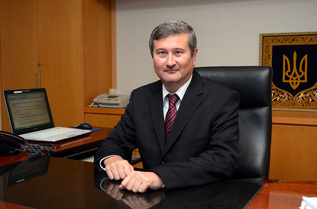
H. E. MARKIIAN CHUCHUK IN FOCUS
Born: March 11, 1961, in the city of Ivano-Frankivsk.
Education: Graduated from the Chernivtsy State University in 1983 with a degree in biology.
Marital status: Married to Tetiana Chuchuk. They have a son who recently graduated from the International School Bangkok.
Professional Career:
1983 -1990: Department of the Ivano-Frankivsk Medical Institute.
1990 -1994: People’s Deputy of Ukraine (Member of Parliament), Chief of Sub-Commission of the Permanent Commission of the
Verkhovna Rada (Parliament) of Ukraine on human rights.
May 1994 -August 1998: First Secretary of the Embassy of Ukraine in the Russian Federation.
August 1998 - June 2000: Counselor, Head of Division of Analysis of World Processes Development of the Department of Political Analysis and Planning of the MFA of Ukraine.
June 2000 - December 2005: Deputy Head of the UN Mission in Georgia.
February 2006 - October 2007: Deputy Director – Head of the Division of the International Relations Analysis of Political Department of the MFA of Ukraine.
October 2007 - June 2008: Deputy Director of Political Department of the MFA of Ukraine.
June 2008 – present: Ambassador Extraordinary and Plenipotentiary of Ukraine to the Kingdom of Thailand.
Born: March 11, 1961, in the city of Ivano-Frankivsk.
Education: Graduated from the Chernivtsy State University in 1983 with a degree in biology.
Marital status: Married to Tetiana Chuchuk. They have a son who recently graduated from the International School Bangkok.
Professional Career:
1983 -1990: Department of the Ivano-Frankivsk Medical Institute.
1990 -1994: People’s Deputy of Ukraine (Member of Parliament), Chief of Sub-Commission of the Permanent Commission of the
Verkhovna Rada (Parliament) of Ukraine on human rights.
May 1994 -August 1998: First Secretary of the Embassy of Ukraine in the Russian Federation.
August 1998 - June 2000: Counselor, Head of Division of Analysis of World Processes Development of the Department of Political Analysis and Planning of the MFA of Ukraine.
June 2000 - December 2005: Deputy Head of the UN Mission in Georgia.
February 2006 - October 2007: Deputy Director – Head of the Division of the International Relations Analysis of Political Department of the MFA of Ukraine.
October 2007 - June 2008: Deputy Director of Political Department of the MFA of Ukraine.
June 2008 – present: Ambassador Extraordinary and Plenipotentiary of Ukraine to the Kingdom of Thailand.

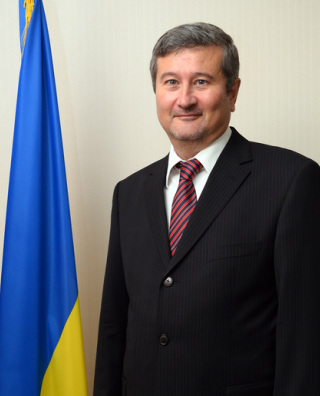
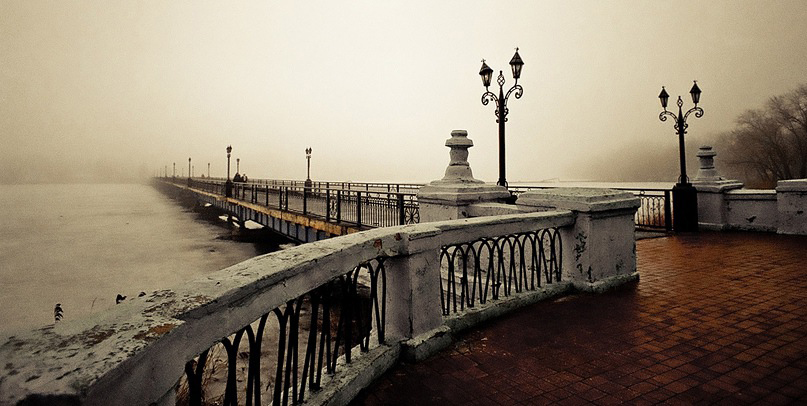
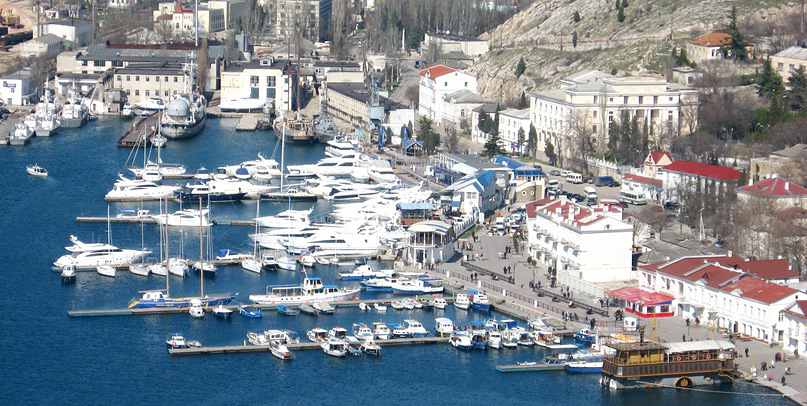
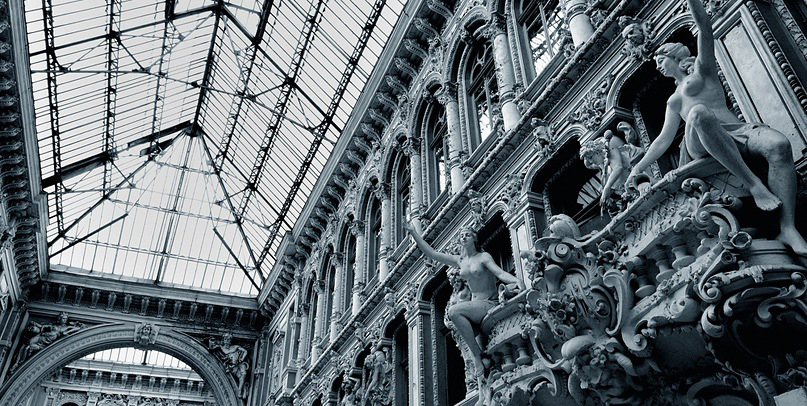
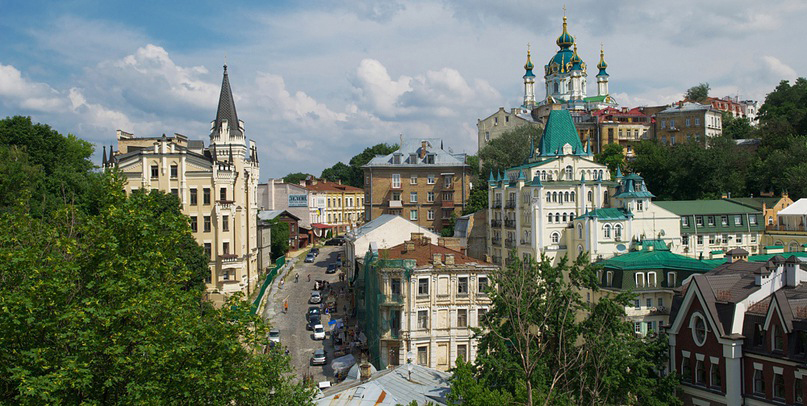
 RSS Feed
RSS Feed
















